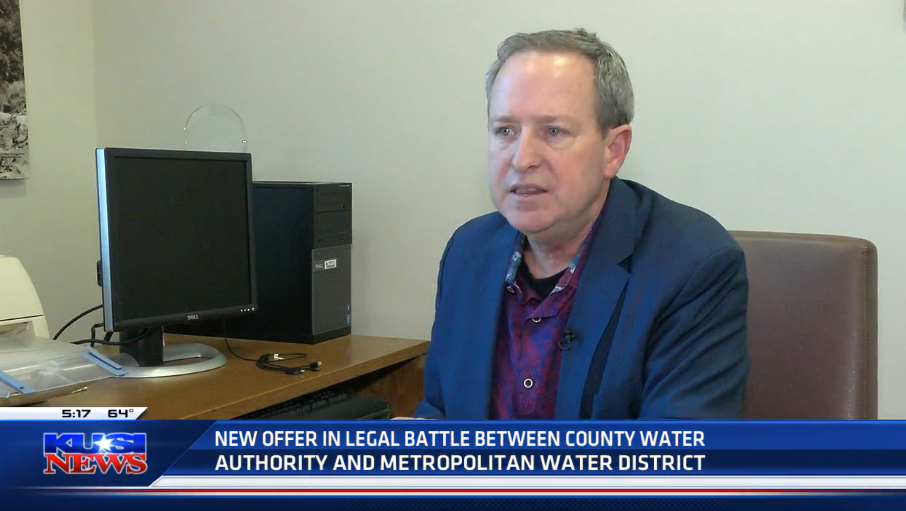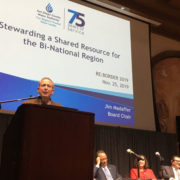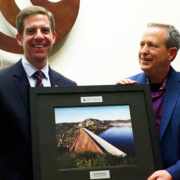Regional collaboration and partnerships are needed to solve cross-border water issues, according to San Diego County Water Authority Board Chair Jim Madaffer.
“The Water Authority is exploring innovative solutions to increase water supply reliability for the San Diego region, but also Baja California and the Southwest,” said Madaffer during today’s opening ceremony of RE:BORDER 2019 at San Diego State University. “Those solutions include the possibility of a transborder water connection that can help both Mexico and the United States.”
Madaffer’s special presentation, “Stewarding a Shared Resource for the Bi-National Region,” was part of the two-day RE:BORDER 2019 conference. It continues Tuesday at the Universidad Autónoma De Baja California in Tijuana.
‘The Water We Share’
The theme for the inaugural binational conference is “The Water We Share.” The goal is to forge regional solutions for transborder water issues by breaking down academic, political, and administrative boundaries.
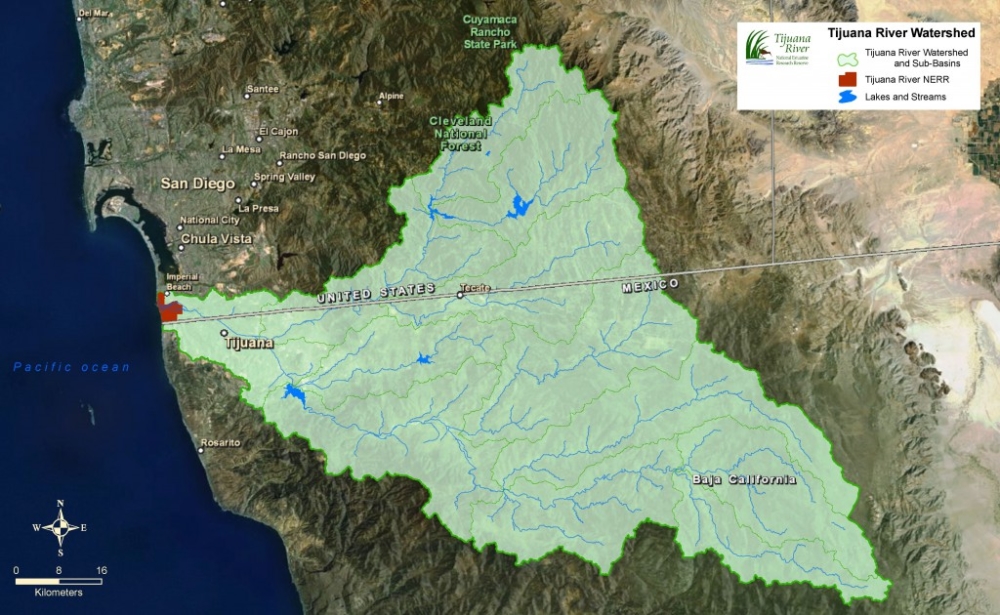
The Tijuana River Watershed covers 1,750 square miles – three-fourths lies in Mexico and includes the cities of Tijuana and Tecate. Graphic: USFWS/Tijuana River National Estuarine Research Reserve
In his opening remarks, San Diego Mayor Kevin Faulconer, was optimistic about solving Tijuana sewage issues, such as polluted runoff flowing into the Tijuana River causing beach closures in Imperial Beach and Coronado.
Momentum increasing for cross-border solutions
“I’ve never seen more momentum than I have in the past six months to solve this cross-border sewage issue,” said Faulconer. “It is a true international issue that we can solve.”
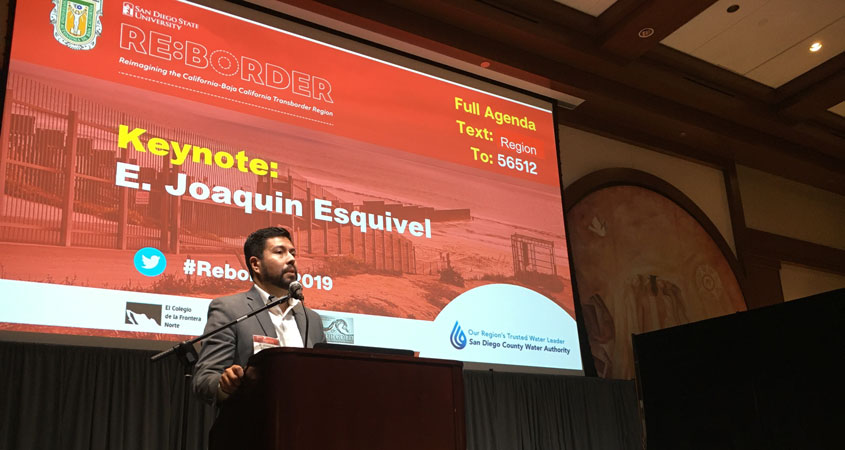
State Water Resources Control Board Chair E. Joaquin Esquivel delivered the keynote address at the binational conference “RE:BORDER 2019 at San Diego State University on November 25. Photo: Water Authority
‘Borders are arbitrary, but we are connected’
California State Water Resources Control Board Chair E. Joaquin Esquivel delivered the keynote address.
“The borders are arbitrary, but we are completely connected,” Esquivel told a crowd of about 200 people in Montezuma Hall. “Infrastructure investments are needed on both sides of the border, and we know with climate change, the entire watershed will be an entirely different place in the future.”
Day 2 sessions in Tijuana will examine how the transborder region will be affected by climate change – including greater risks of floods, landslides and wildfires – how reduced water for agriculture could impact the region, and on-going concerns about uneven access to water resources.
RE:BORDER is a new initiative from San Diego State University President Adela de la Torre that each year will examine a significant issue. The RE:Border 2020 conference is scheduled for November 12 and 13.

